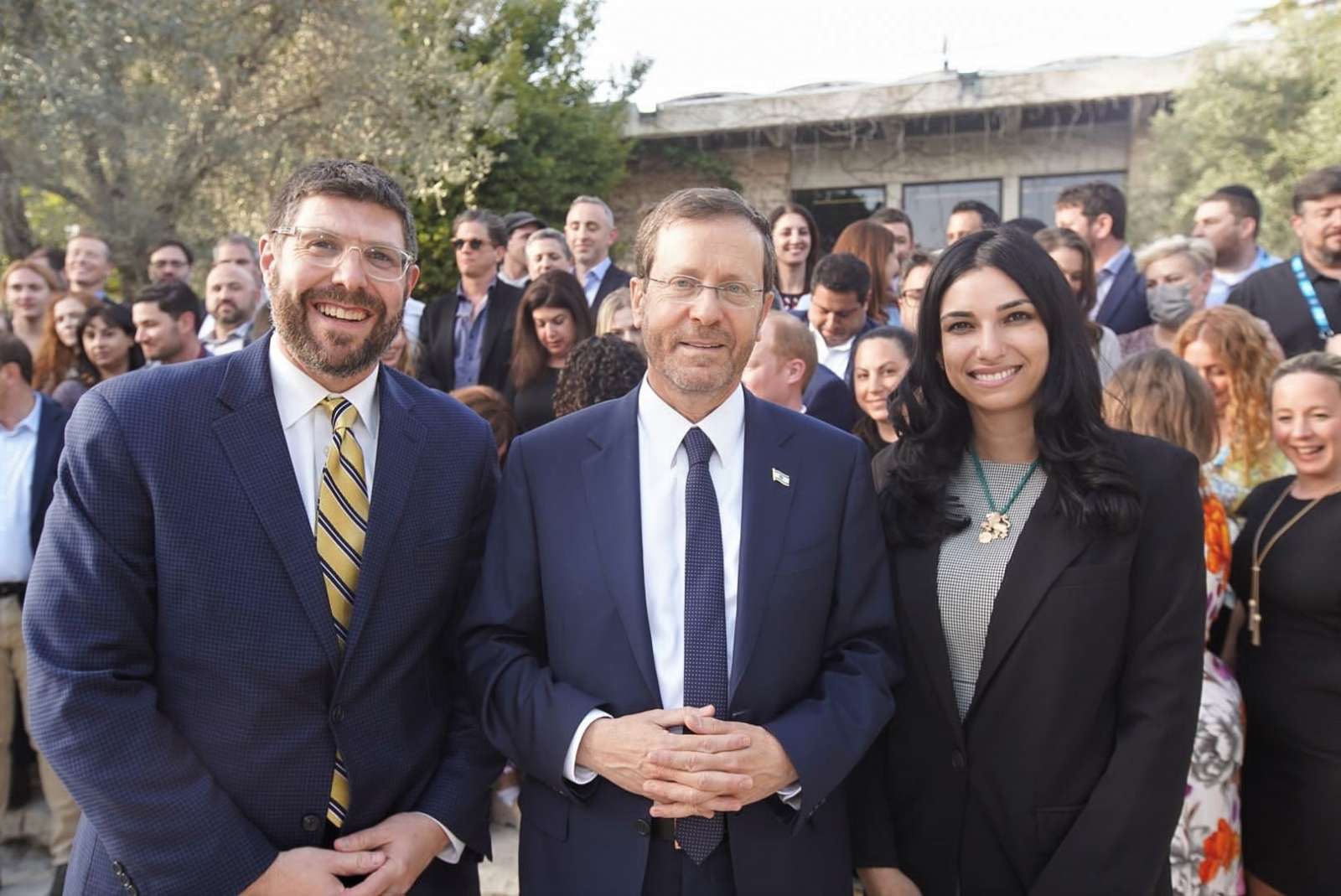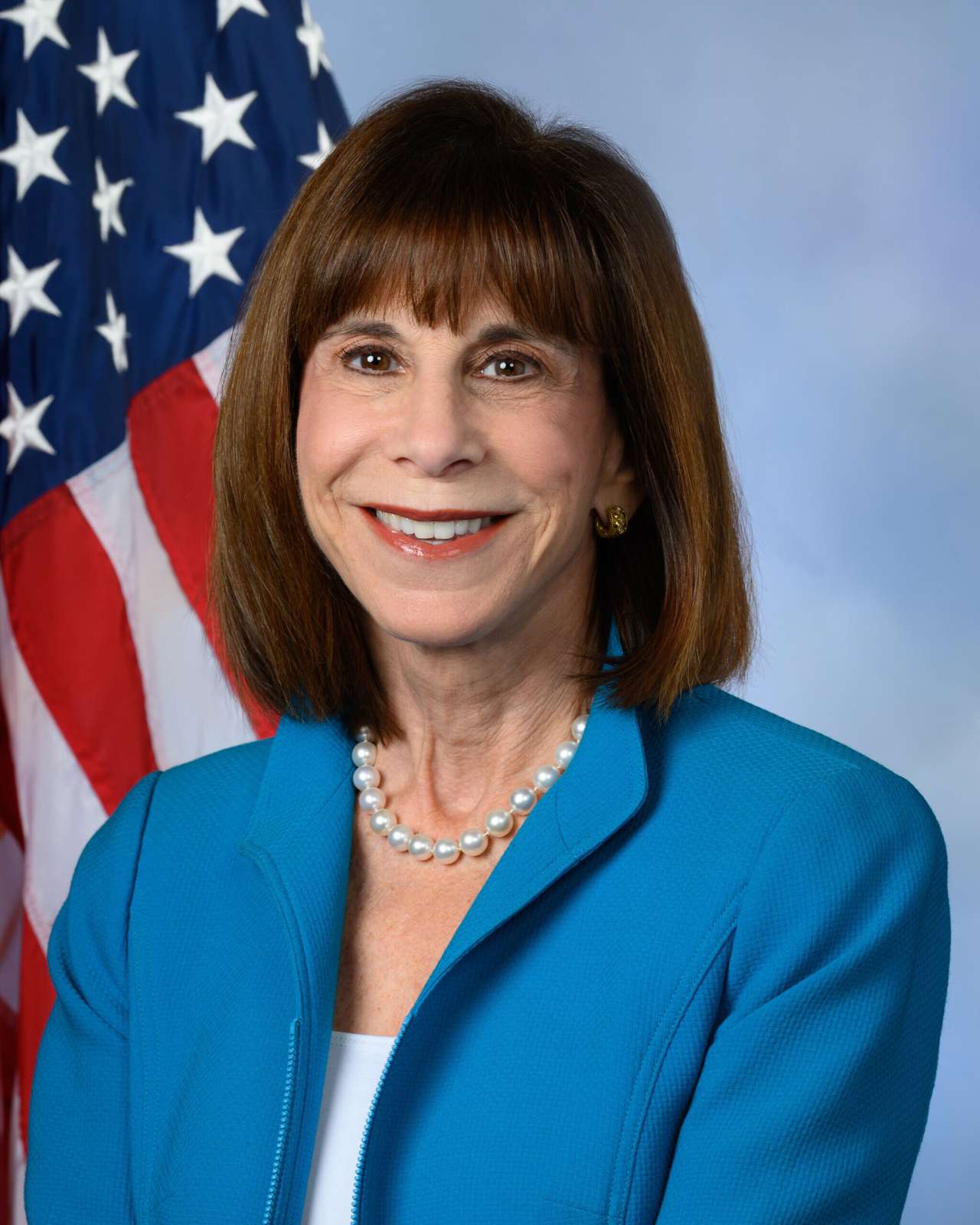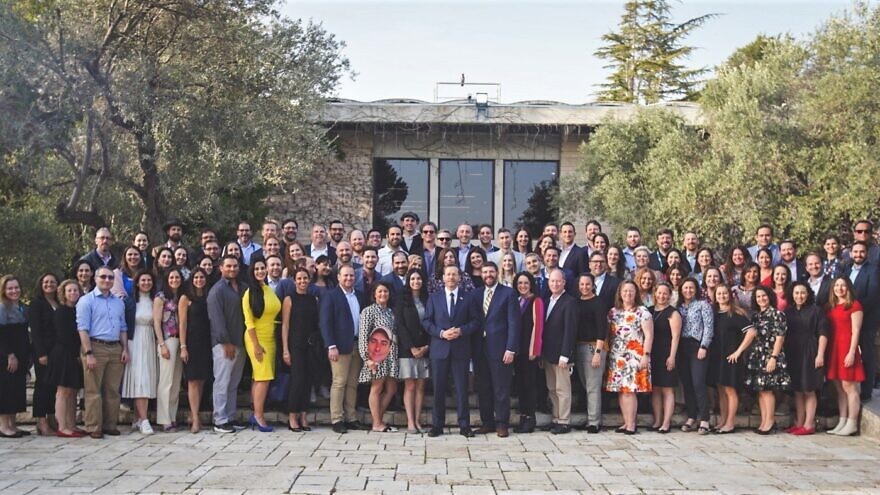They’ve been the next generation for multiple generations.
The alumni list of the Jewish Federations of North America’s (JFNA) National Young Leadership Cabinet reads like a “who’s who” across the Jewish world of philanthropy, politics, art and business. And many of them proudly credit their cabinet experience as defining their lifelong Jewish journey.
Rep. Ted Deutch (D-Fla.), a cabinet alum, surprisingly announced recently that he will be leaving Congress later this year to head the American Jewish Committee. He told JNS that his foundational experience in the cabinet contributed to his desire to pursue Jewish service in his post-congressional life.
“I think all of the things in the Jewish community that has mattered to me through my life have contributed to this. I think if had asked my cabinet chevra (‘society’) if they had to look ahead a couple of decades, would it be more likely that I would wind up being in Congress or wind up running a great organization like AJC, they probably would have found the AJC position to be even more likely. And those experiences, because they’re so personal, absolutely resonated with me when this opportunity arose. It just made it even greater,” said Deutch.
Just last week, cabinet members were in Israel for the first major North American young leadership mission to Israel since the coronavirus pandemic, dubbed “New Mission for a New Generation.”
The aim was to engage in dialogue around the challenges of Israel-Diaspora relations, Israel’s emerging and dynamic geopolitical and humanitarian role on the global stage and pluralism and diversity in Israel, according to JFNA. The cabinet met with Israeli President Isaac Herzog, as well as changemakers, philanthropists, social entrepreneurs and young Israeli innovators; explored Jewish Federation-funded projects promoting diversity and inclusion; and met with new immigrants from Ukraine and Ethiopia.
The cabinet’s mission is to train and inspire the most promising young volunteers, ages 30 to 40, for positions of leadership in the Jewish community, providing them tools to better themselves and their capacity as leaders through continued learning, reflection and action. Members participate in a five-year curriculum that builds on a series of Jewish values: hineni (“call to leadership”), achrayut (“responsibility”), kehilah kedosha (“sacred community”), Klal Yisrael (“Jewish peoplehood”) and hazon (“vision”).
“I certainly got to cut my teeth on what national leadership looks like. I had only done things in my own community before. I had never known what it was like to be part of a national effort and learned from those around me, from those the years ahead of me and was able to mentor those who came behind me about what it means to lead a national organization, and how you do that,” Julie Platt, a cabinet alumnus and incoming chair of the JFNA board of trustees, told JNS.
The cabinet’s alumni praise the leadership program as one where members are not only taught the skills they need to be successful but are given the chance to put those skills into action.
Rep. Kathy Manning (D-N.C.), a former JFNA board chair, told JNS that “it was a great experience in many, many ways. Not only did I make friends who I still have today, but when I think back … not only did I learn a whole lot more about Judaism than I had learned in many prior years, I learned fundraising skills. You know, you can’t be in the job I’m in right now unless you can be a fundraiser, and I could never have had the jobs that I had at JFNA unless I knew how to be a fundraiser.”
Deutch concurred, pointing to the intensely personal nature of the cabinet. “The opportunity to spend a lot of time with people who are brought together because of their shared commitment to the Jewish community—and then having the opportunity to speak in the most personal terms about why it matters to you, how you come to your love of Israel and the Jewish community, what your background is that made this a priority for you—those kinds of conversations don’t really take place anywhere else,” he said.

‘A team-building experience and a skills-building experience’
The cabinet, as well as American Jewish life in general, has seen innumerable changes since its founding some 60 years ago. According to program leadership, though, some basic principles remain the same, even as the mission adapts to the times.
“The program has been completely transformed for a new generation of young leaders. It keeps its roots in sort of the core DNA of its original founding, its values and its vision. But the experience itself has changed pretty significantly from its original founding 60 years ago,” Rabbi David Kessel, JFNA associate vice president for national young leadership and NextGen engagement, told JNS. “We’ve developed a leadership curriculum—a five-year trajectory, year over year—and the curriculum grows from year one starting with the self as a leader, and one’s personal stories and values and telescopes out over the five years to building relationships, building teams, building community and taking a global look at Jewish life as broadly as possible.”

Kessel pointed to the cabinet’s leadership launch of a fundraising campaign for Ukraine. The membership raised more than $200,000 in the course of about a week at the outset to help with basic humanitarian needs through JFNA’s partner organizations operating in the Eastern European region. The cabinet also put together a clothing and supply drive for refugees who are settling in Israel.
Manning, the first woman to pilot JFNA, also noted that the cabinet has transformed when it needed to while remaining grounded in its roots.
“When I was started off, there was a men’s cabinet and women’s cabinet. This was back in the Stone Age. I think our retreats overlapped by maybe a day, but we didn’t have joint retreats. And, of course, that changed pretty dramatically,” she said. “What stayed the same was the notion that the cabinet had to be an educational experience. It had to be a team-building experience, and it had to be a skills-building experience.”
As Deutch prepares for a return to the world of Jewish service, JNS asked what he wants to convey to the next generation of leadership.
“Well, the question is the answer, isn’t it?” he posed. “I think recognizing the responsibility to create that next generation of Jewish leadership. I want the pro-Israel people who come to see me, young people who come to see me, Jewish community activists from young leaders who come to see me now in Congress, I want them to appreciate what they’re able to do now to impact the discourse, to impact the way that their circle of friends and their community views these issues.
“I’m going to have the chance to do this full-time, right? To have the ability to make sure that young people who are benefiting from high school advocacy programs and then find their way to college campuses are well-equipped to respond to the challenges that they’re going to face and to give them the tools to succeed, partnering with so many other great organizations who are doing this important work on campus. And then, finding a way for them to be involved when they leave.”


























